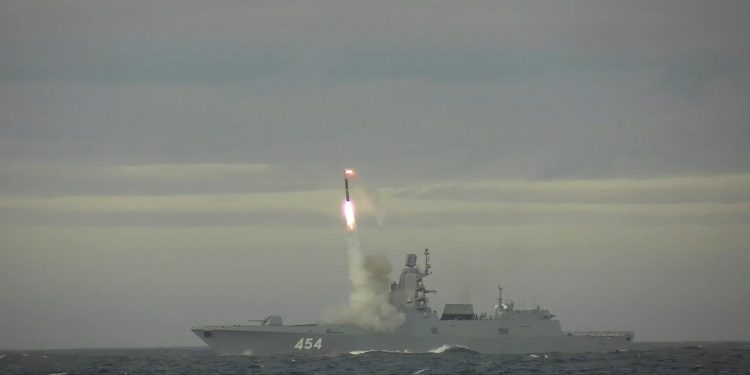South Africa’s military on Wednesday defended its decision to host controversial naval exercises jointly staged with Russia and China and coinciding with the one-year anniversary of the Kremlin’s invasion of Ukraine.
Originally slated to start last week, the exercise dubbed Mosi-II kicked off on Wednesday along South Africa’s eastern coast.
But coming on the eve of the anniversary of Russia’s onslaught on Ukraine, the drills were described by commentators as politically “dubious” and showing “insensitivity”.
The exercises have also been criticised by the United States and the European Union.
South Africa has refused to condemn the invasion of Ukraine which has largely isolated Moscow on the international stage, saying it prefers dialogue to end the war.
“There is a difference between military and politics,” Lieutenant-General Siphiwe Sangweni, chief of joint operations in the South African National Defence Force, told a news conference in the eastern port town of Richards Bay.
He said the army was “guided by government” but also needed to learn skills from other military forces to protect South Africa and for use in international peacekeeping operations.
“Yes, there will be other countries who feel differently in how we have approached this, but… all countries are sovereign nations and have a right to handle things (as) they see fit,” he said.
Sangweni said “cooperation and coordination with all other militaries” was “very important”.
More than 350 members of South Africa’s armed forces will take part in the exercises which wind up on February 27. Russia is the “lead” country in the drills, said South Africa.
A Russian military frigate equipped with a powerful Zircon missile system and a Chinese destroyer will be used in the exercises.
The Russian military said in a statement earlier Wednesday that the frigate “Admiral Gorshkov” will be used among other things to practise tactics on how to fend off threats to security at sea.
Oleg Gladkiy, a commander and captain with the Russian contingent speaking through a translator, said the exercises will include mutually manoeuvring the three countries’ ships to simulate the liberation of a vessel captured by pirates, and “artillery fire” which would not include the firing of hypersonic missiles.
A joint statement read by a South African official also said no missiles would be fired from the Russian vessel during the exercises.
Brazil is participating as an observer, in the second such exercise involving South Africa, China and Russia.











